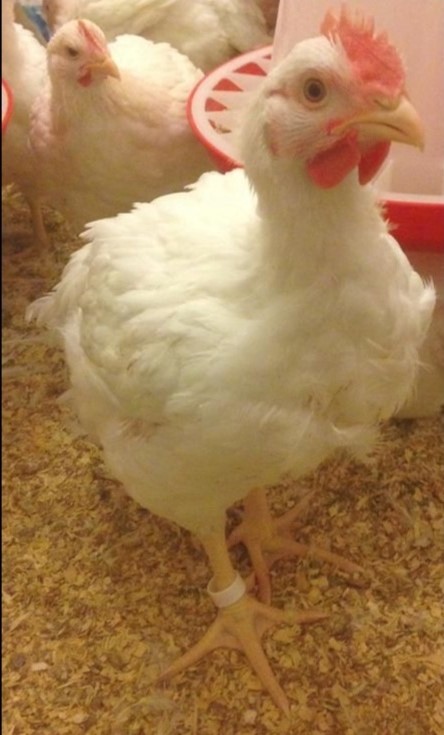Behaviour and health outcomes in conventional and slow-growing breeds of broiler chicken
In a study carried out at the RVC Hawkshead campus, RVC researchers led by Dr. Siobhan Abeyesinghe compared conventional and slow-growing broiler breeds. We have identified key behavioural measures that should be used to improve welfare assessments.
Abeyesinghe, S.M., Chancellor, N.M. Hernandez More, D., Chang, Y.-M., Pearce, J., Demmers, T., & Nicol C.J. (2021).
Associations between behaviour and health outcomes in conventional and slow-growing breeds of broiler chicken.
Animal 15(7) 100261. 100261 (Open access)

There is a growing demand for “better chicken” derived from healthier breeds reared within improved living environments. To ensure transparency in breed approval for such schemes, candidate breeds are tested using defined protocols. Broiler welfare is also assessed on farm. All assessment and auditing protocols involve handling birds to assess health outcomes such as gait score, dermatitis and plumage condition. We identified key behavioural measures that are strongly associated with the more traditionally used health outcomes. As these behavioural measures additionally represent affective and motivational states in birds, including positive states they should be incorporated into welfare assessments for broiler chickens. Advances in automated monitoring techniques should focus on these key behaviours and ultimately may allow replacement of more traditional health assessments, which may themselves disturb or stress birds, with more comprehensive assessment of bird welfare.
